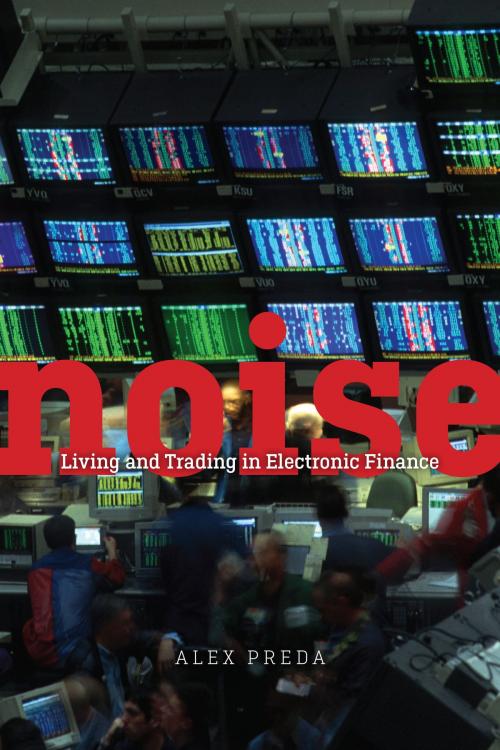Noise
Living and Trading in Electronic Finance
Business & Finance, Finance & Investing, Investments & Securities, Nonfiction, Social & Cultural Studies, Social Science, Sociology| Author: | Alex Preda | ISBN: | 9780226427515 |
| Publisher: | University of Chicago Press | Publication: | March 1, 2017 |
| Imprint: | University of Chicago Press | Language: | English |
| Author: | Alex Preda |
| ISBN: | 9780226427515 |
| Publisher: | University of Chicago Press |
| Publication: | March 1, 2017 |
| Imprint: | University of Chicago Press |
| Language: | English |
We often think of finance as a glamorous world, a place where investment bankers amass huge profits in gleaming downtown skyscrapers. There’s another side to finance, though—the millions of amateurs who log on to their computers every day to make their own trades. The shocking truth, however, is that less than 2% of these amateur traders make a consistent profit. Why, then, do they do it?
In Noise, Alex Preda explores the world of the people who trade even when by all measures they would be better off not trading. Based on firsthand observations, interviews with traders and brokers, and on international direct trading experience, Preda’s fascinating ethnography investigates how ordinary people take up financial trading, how they form communities of their own behind their computer screens, and how electronic finance encourages them to trade more and more frequently. Along the way, Preda finds the answer to the paradox of amateur trading—the traders aren’t so much seeking monetary rewards in the financial markets, rather the trading itself helps them to fulfill their own personal goals and aspirations.
We often think of finance as a glamorous world, a place where investment bankers amass huge profits in gleaming downtown skyscrapers. There’s another side to finance, though—the millions of amateurs who log on to their computers every day to make their own trades. The shocking truth, however, is that less than 2% of these amateur traders make a consistent profit. Why, then, do they do it?
In Noise, Alex Preda explores the world of the people who trade even when by all measures they would be better off not trading. Based on firsthand observations, interviews with traders and brokers, and on international direct trading experience, Preda’s fascinating ethnography investigates how ordinary people take up financial trading, how they form communities of their own behind their computer screens, and how electronic finance encourages them to trade more and more frequently. Along the way, Preda finds the answer to the paradox of amateur trading—the traders aren’t so much seeking monetary rewards in the financial markets, rather the trading itself helps them to fulfill their own personal goals and aspirations.















